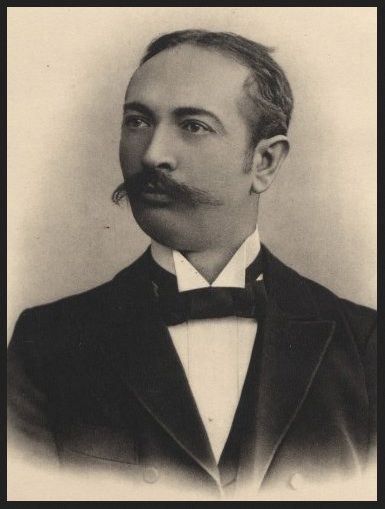Józef Piłsudski in German prisons

At the heart of the revolution
The next day, in the early hours of 9th November, the Poles decided to go into the city. Piłsudski had no sword, but because he was in uniform he was reluctant to take to the streets without a weapon. Count Kessler came to his aid. It took several hours to solve the problem. Because all the weapon depots were closed he gave him his own bayonet. Sosnkowski stated: “Even in the legions, the bayonet was an everyday weapon worn in battle.” Piłsudski and Sosnkowski strolled through the centre of the German capital from Friedrichstrasse to Leipziger Strasse, then to Pariser Platz and Unter den Linden, the city's well-known major traffic axis. Since they had accepted an invitation for a late breakfast, they stopped at the Hiller Unter den Linden restaurant. It was time to switch to business matters, something which the German side probably also wanted, since representatives from the German Foreign Ministry were expecting them there. Sosnkowski called this meeting the “feast of the plague victims”:
“(...) Breakfast was served in a small separate room”, he recalled, “which was not on the street but at the back of the restaurant. A line of minions in flawless tailcoats, a splendidly laid table, the snow-white tablecloth, flowers, the shining silver, the shining crystal glass and the lush gilding of the old German style were all flooded by the electric light that fell from the chandeliers. The outside blinds on the hall windows were tightly closed. Prince Hatzfeld, Count Kessler, van Gülpen and I were in plain clothes, only the Commander was in his humble, worn uniform, whose grey colour made a strange contrast to the overall picture.”
During the meal the Germans tried again to get Piłsudski to pledge not to do anything against Germany, but he again explicitly refused. In view of the current political situation the Germans were aware that they had neither leverage nor incentives. That said, it was vital to ensure an orderly passage through these areas for the German troops that were to be quickly withdrawn from the East. But now it had become pointless to continue negotiations, especially since those present could hear shouting in the streets. The revolution in Berlin was in full swing. The breakfasters then made a hasty departure from the Hiller Restaurant without a declaration from the Poles. The revolution and the abdication of the German Emperor Wilhelm II accelerated further developments. Count Kessler appealed to his superiors to arrange for Piłsudski to leave the city immediately:
“(...) It was clear that it was high time to get Piłsudski out of Berlin (the Maikäfer barracks had already been stormed)”, Count Kessler wrote in the “Frankfurter Zeitung” of 7th October 1928, “so I went with [Hermann] Hatzfeld to the War Ministry to demand a chartered train. We were welcomed by a Major of the General Staff, who, as in the best days of the war, was distracted and ironical. To him Piłsudski was still a very ordinary scoundrel (...)”




![Flyer to protest against the illegal internment of Piłsudski, 1917 Flyer to protest against the illegal internment of Piłsudski, 1917 - Flyer: On Sunday 29th of this month we will gather in front of the Adam Mickiewicz Monument at 11 am to protest against the illegal internment of Commander Józef Piłsudski and Chief of Staff of the First Brigade, Lieutenant Colonel [Kazimierz]. Sosnkowski](/sites/default/files/styles/width_100_tiles/public/assets/images/obywatele-obywatelki-inc-dnia-29-bm-w-niedziele-zbieramy-sie-o-godz-11-rano-na-0_kopie.jpg?itok=hxoxe_Lq)














































